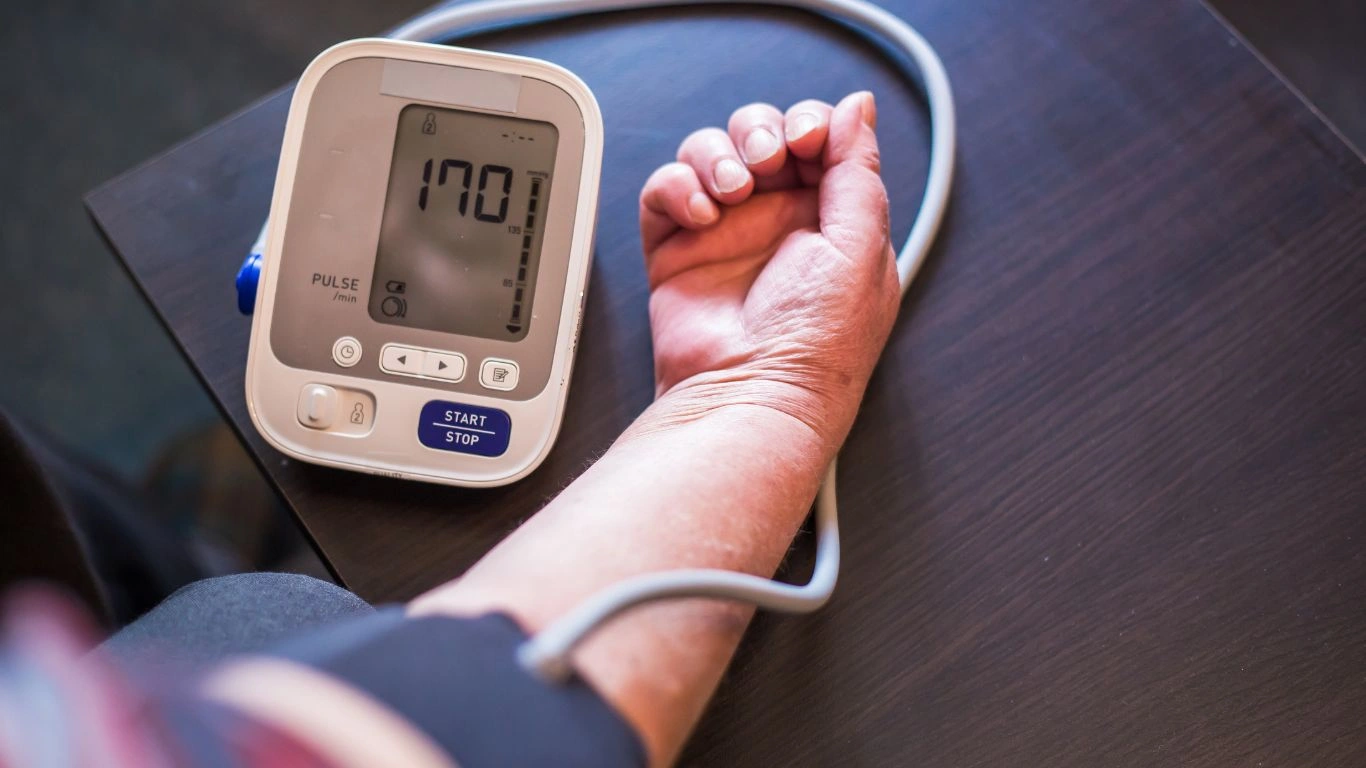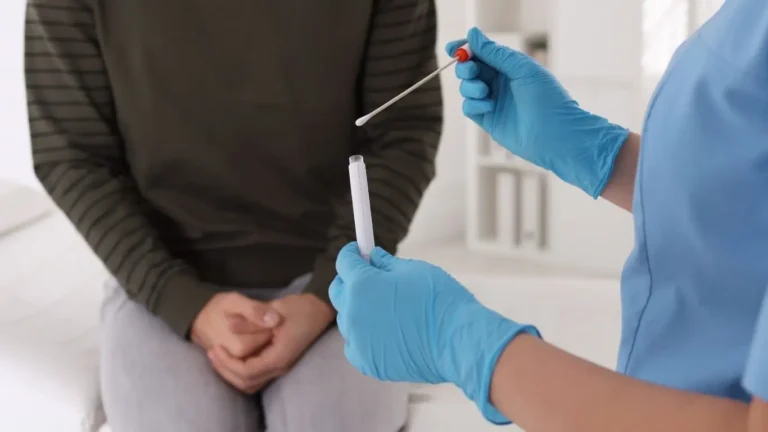Best Breakfast Cereals for Hypertension That Lower BP Fast
Let’s talk about something that’s both comforting and crucial to your health—breakfast! Specifically, the best breakfast cereals for hypertension. If you’ve been diagnosed with high blood pressure (or you’re just looking to keep it in check), your morning meal can be a game-changer. I’ve spent years helping patients navigate their diets to support heart health, and let me tell you—starting your day with the right cereal can set the tone for better blood pressure control.
Why Breakfast Matters for Hypertension
Skipping breakfast? Big mistake. Your body needs fuel in the morning to regulate blood sugar, support heart health, and keep blood pressure stable. A well-balanced breakfast helps prevent mid-morning energy crashes and unhealthy snacking—two things that can mess with your blood pressure. But not all cereals are created equal. Some are loaded with hidden sodium and sugar, which is the last thing you need.
The Blood Pressure and Diet Connection
Hypertension is heavily influenced by diet. I’ve seen patients completely transform their numbers just by tweaking their eating habits. The key? A diet rich in fiber, potassium, and whole grains—while keeping sodium and added sugars low. Your breakfast cereal should check these boxes.
How to Choose the Best Breakfast Cereal for Hypertension

There’s a fine line between a “healthy” cereal and one that just looks the part. Here’s what you need to watch for:
1. Look for Whole Grains
The first ingredient on the label should be a whole grain—like oats, whole wheat, or brown rice. These help reduce cholesterol, improve heart health, and keep blood pressure steady.
2. Check the Fiber Content
Aim for at least 4-5 grams of fiber per serving. Fiber helps with digestion and plays a crucial role in regulating blood pressure.
3. Watch Out for Sodium
Even so-called “healthy” cereals can be sneaky with sodium. Keep it under 150 mg per serving to avoid unnecessary blood pressure spikes.
4. Keep Sugar in Check
Sugar is another hidden culprit. Many cereals marketed as “heart-healthy” are loaded with added sugars. Stick to options with less than 6 grams of sugar per serving.
5. Boost Potassium Intake
Potassium is a powerful ally against high blood pressure. Look for cereals with added nuts, seeds, or dried fruit (without added sugar) for a natural potassium boost.
The Worst Types of Breakfast Cereals for Hypertension

Just as some cereals can help your heart, others can sabotage your blood pressure goals. Avoid these common pitfalls:
- Sugary Cereals: If the first ingredient is sugar or high-fructose corn syrup, put it back on the shelf.
- Highly Processed Options: Many cereals contain artificial flavors, preservatives, and refined grains that do your heart no favors.
- “High-Protein” Cereals: Some of these pack way too much sodium, which can work against you.
- Granolas and Clusters: While they seem healthy, many are packed with sugar and unhealthy fats.
Top Heart-Healthy Cereal Brands to Consider

Finding a cereal that’s good for your blood pressure and tastes great can feel like searching for a needle in a haystack. But don’t worry—I’ve got you covered! Here are some solid choices:
- Plain Oatmeal: Whether it’s old-fashioned or steel-cut, oatmeal is a fantastic, sodium-free choice.
- Bran Flakes: High in fiber and low in sugar—just watch the sodium levels.
- Shredded Wheat: 100% whole grain with zero added sugar or salt.
- Puffed Brown Rice: A great low-sodium option that pairs well with fruit.
Best Ways to Upgrade Your Cereal for Hypertension

Alright, so now you’ve picked the right cereal. But why stop there? A few smart add-ins can turn your already healthy breakfast into a blood pressure powerhouse. I always tell my patients—small tweaks can make a big difference. Here are some easy ways to level up your morning bowl:
1. Add Fresh or Dried Fruit
Fruits like bananas, berries, and oranges are loaded with potassium, which helps balance sodium levels and keep blood pressure in check. If you’re using dried fruit, make sure it’s unsweetened!
2. Sprinkle on Some Nuts and Seeds
Almonds, walnuts, chia seeds, and flaxseeds not only add crunch but also deliver heart-healthy fats, fiber, and magnesium—all fantastic for hypertension management.
3. Choose the Right Milk
Regular cow’s milk is fine for many, but if you’re watching your sodium and fat intake, try unsweetened almond, oat, or flax milk. These options keep your meal heart-friendly.
4. Avoid Sugary Add-Ins
Skip honey, maple syrup, or flavored yogurts. Instead, let natural fruit sweetness do the work. Trust me, your blood pressure will thank you!
What About Instant Cereals? Are They Safe?
I get this question all the time. The short answer? It depends. Some instant cereals are great, while others are loaded with sugar and sodium. Here’s how to choose wisely:
- Go for plain varieties: Instant oatmeal with no added sugar or flavors is a solid choice.
- Watch the sodium: Some flavored packets sneak in more sodium than a bag of chips!
- Add your own toppings: Instead of pre-sweetened options, start with a plain base and add fresh fruit or cinnamon.
Other Breakfast Options for Blood Pressure Control

Cereal is great, but variety is key. Here are a few other breakfast choices that keep your heart in top shape:
1. Overnight Oats
A meal-prep favorite! Soak oats in unsweetened almond milk overnight, then add nuts and berries in the morning. Simple, delicious, and perfect for busy mornings.
2. Whole-Grain Toast with Avocado
Avocados are packed with potassium and healthy fats. Pair them with whole-grain toast, and you’ve got a winning breakfast.
3. Greek Yogurt with Nuts and Seeds
If you tolerate dairy, go for unsweetened Greek yogurt. It’s high in protein and works well with walnuts, flaxseeds, or a handful of fresh berries.
4. Scrambled Eggs with Spinach
Eggs get a bad rap, but they can be part of a balanced diet. Scramble them with leafy greens like spinach for an extra boost of magnesium and potassium.
Final Thoughts (But Not a Conclusion!)
Making the right breakfast choices can have a serious impact on your blood pressure. I’ve seen patients turn their numbers around just by tweaking what they eat in the morning. The key is to focus on whole grains, fiber, and heart-friendly nutrients—while keeping sugar and sodium in check.
Case Studies & Real-Life Examples

Over the years, I’ve seen firsthand how simple dietary changes can make a huge impact on blood pressure. Let me share a couple of real-life examples that prove just how powerful the right breakfast choices can be.
Case Study 1: Sarah’s Transformation
Sarah, a 52-year-old teacher, had struggled with hypertension for years. She was skeptical when I suggested changing her breakfast routine. She loved her frosted cereals, but they were loaded with sugar and sodium. We switched her to plain oatmeal with flaxseeds and bananas, and within three months, her blood pressure dropped from 145/92 to 128/80! The best part? She told me she actually preferred her new breakfast because it kept her full longer.
Case Study 2: Mike’s Simple Swap
Mike, a 60-year-old retired firefighter, had always eaten processed cereals with milk. His sodium intake was through the roof, and his BP numbers reflected it. I had him switch to shredded wheat with unsweetened almond milk and a handful of walnuts. Six weeks later, he saw a noticeable dip in his blood pressure. He couldn’t believe such a small change could make such a difference.
Key Takeaways: What You Need to Remember
If you take away just a few things from this article, let it be these:
- Whole grains, fiber, and potassium are your best friends when it comes to blood pressure control.
- Watch out for hidden sugars and sodium in processed cereals.
- Upgrade your cereal with heart-healthy add-ins like nuts, seeds, and fresh fruit.
- Consistency matters. A one-time swap won’t change your numbers overnight, but over weeks and months, it adds up.
FAQs
Here are some common questions I get from patients about breakfast and hypertension:
1. Is granola a good option?
It depends. Many store-bought granolas are packed with sugar and unhealthy fats. If you love granola, make your own at home with plain oats, nuts, seeds, and a small amount of honey.
2. Can I eat cereal if I have diabetes and hypertension?
Yes, but choose a low-GI cereal like steel-cut oats or bran flakes and avoid sugar-laden options. Pair it with protein and healthy fats for better blood sugar control.
3. How soon will I see results from changing my breakfast?
Some people notice improvements in just a few weeks, while others take a few months. Consistency is key!
Bonus: Additional Resources or DIY Tips
Want to take your heart health to the next level? Here are some extra tips:
- Try meal-prepping overnight oats for an easy grab-and-go option.
- Make your own low-sodium granola with rolled oats, nuts, and cinnamon.
- Check out the American Heart Association for more hypertension-friendly recipes.
Appendix: Table, References, and Disclaimer
| Recommended Cereal | Fiber (g per serving) | Sodium (mg per serving) |
|---|---|---|
| Shredded Wheat | 6g | 0mg |
| Bran Flakes | 7g | 150mg |
| Oatmeal | 4g | 0mg |
References:
- National Heart, Lung, and Blood Institute
- Centers for Disease Control and Prevention (CDC) – Hypertension
Disclaimer: This article is for informational purposes only and should not replace medical advice. Always consult your healthcare provider before making dietary changes.
Call to Action: Ready to take charge of your blood pressure? Start by making small, sustainable changes. Have questions? Drop a comment below or share your own breakfast tips for heart health!

Dr. Gwenna Aazee is a board-certified Internal Medicine Physician with a special focus on hypertension management, chronic disease prevention, and patient education. With years of experience in both clinical practice and medical writing, she’s passionate about turning evidence-based medicine into accessible, actionable advice. Through her work at Healthusias.com, Dr. Aazee empowers readers to take charge of their health with confidence and clarity. Off the clock, she enjoys deep dives into nutrition research, long walks with her rescue pup, and simplifying medical jargon one article at a time.







